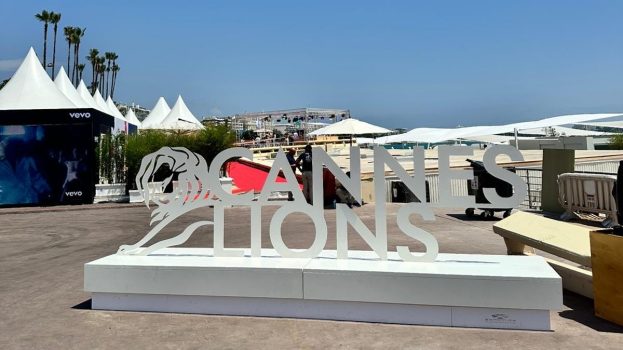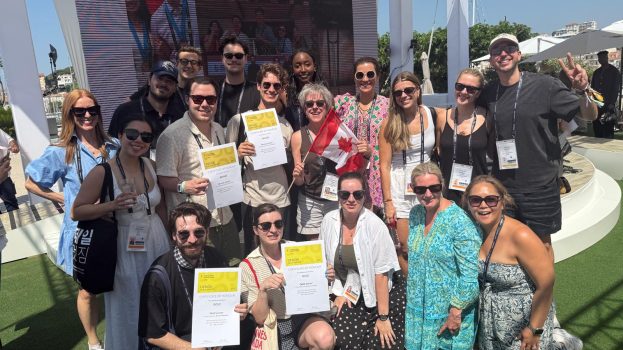Images courtesy of Shay Conroy
This story was originally published in the 2022 Summer issue of strategy magazine.
Moderated by Josh Kolm, Edited by Jennifer Horn & Chelsea Clarke
Ad land has had a tough go of it these last few years. Yet, Canadian agencies continue to punch above their weight, rising above constraints to stand amongst giants on the global stage. More and more of our shops are becoming international household names for creating work that defies conventions, spurs innovation and solves problems. To talk about Canada’s secret sauce, strategy, in partnership with the Globe & Mail, invited some of the country’s top CCOs, CMOs and CSOs to a roundtable discussion in Toronto.
For the agencies at the table, how much do you push clients on creative ideas? And for the clients, how much do you want to be pushed?
Dhaval Bhatt: Frankly, with some of our best clients, there is an expectation to be made to feel a little uncomfortable. We see more of them wanting to be pushed. And I think that goes back to Sean’s point, where there is a clear understanding of what the expectations are, and communicating human-to-human what each of our agendas are.
Johanna Andren: Clients really want the agency to love the ideas that are being presented – as long as they’re not pushing us to take too many risks that could come back at us in negative PR. We want a healthy discussion. But, in general in Canada, I think we could be challenged even more. For the most part, there is a more collaborative, interactive way of working here that I really appreciate. There is no sitting on high horses. We are partners, we’re in the same boat.
Nancy Crimi-Lamanna: Getting to great work takes a relationship. And nothing happens overnight. Also, we’re not in the business of “good” meetings. When our goal is to have a good meeting, what we hear back from the client is, “Oh, you didn’t push us hard.” When we do try to sell a risky idea that we know will blow up in culture, we work with clients to identify all of the risks and have answers for anything that we think could come up. We have someone moderating social to understand what’s happening and have those answers ready.
Sean McDonald: I fundamentally hate it when people say that clients should be “brave.” We’re just demanding the outcome without being accountable for it, just because it would benefit our process. Why not talk about ambition? It respects what it takes to do well in your organization and in mine. Bravery is an emotion that you’re asking clients to have in the face of obstacles. Make them feel comfortable. Give them confidence.
Andren: Also, as a client, you’re being challenged by all these people within the organization who don’t know much about marketing. So I think it’s important to encourage a client to be brave, but in the right conditions.
Ari Elkouby: I have a lot of empathy for clients, because there are ideas that can take a leap of faith. But that’s what I love about Canadian advertising: The inventiveness. Sometimes when you’re leading a wave of innovation, there’s no safety net. There’s nothing to say, “Well, this has been done 10 times before, and I know what the outcome is.” I have to give it to Canadian clients who are willing to go on a less-travelled journey. Because not everyone does.
Crimi-Lamanna: It’s one of my favourite sayings: “Leap and a net will appear.” We always figure it out, even though it sounds like a big, scary goal, and like something you’ve never done before.
A lot of things have changed because of the pandemic. Have any of those changes been beneficial to the industry or to your agency?
Elkouby: Helping brands get through a pandemic is something marketers haven’t asked agencies to do before. And over the last few years they let us in behind the curtain. I’ve had conversations with my clients that I’ve never had before, where they’re disclosing things about how they operate that generally don’t get discussed with agencies. So, to me, that’s created a bond unlike anything we’ve experienced. It’s fostered a relationship that is far stronger than before.
McDonald: As an agency, we’ve never worked better together between offices than we do now. We’re not even going to talk about offices anymore. We’re just an agency in lots of different places. But I am concerned about the experience of those starting in advertising. I find myself wondering if we are all doing what we can for the people at the beginning, not just those further in their career. I don’t have an answer for that, but I know we spend a lot of time talking about it. If we want to keep doing all the good stuff we’re talking about today, that generation has to benefit the same way we did through listening and watching and doing.
Is there anything that’s currently holding the creative industry back?
Elkouby: I think one barrier – it’s not a new trend – but I think the movement of clients away from AOR status to more project-based work is still a huge problem for agencies when it comes to staffing, as well as working and learning the business. Those AOR relationships that used to be long-standing seem to be fewer. And if you’re trying to attract talent in the country, or even around the world, it’s hard to do when there’s a small client engagement, with no guarantee of future work. Those AOR relationships show the power of strong relationships and what they can create. There are great marketers here who have an understanding of that relationship – build a strong foundation and the work will come.
McDonald: I think that if you stand for your value, and you ask for it, then that is what it’s worth. You need to believe that the five or six ideas you present to a client are not worthless. They’re globally good, not just Canada good. I think then you can get a retainer at a high value, with a long-lasting relationship. I’m not saying it’s easy, but attitudinally, we’re going through a moment.
Crimi-Lamanna: Don’t forget the rising costs of talent. We’re going to have to figure that out. We’re not a big market, our clients don’t have big budgets, but we can’t keep absorbing the extra cost of talent. So that value proposition is going to have to change, because I’m paying 20% more for talent across the board. The costs have risen dramatically and they’re going to have to be passed on somehow.
Mo Bofill: As leaders, we can forget how challenged we are with the great exodus and rising costs, as well as mental health issues people are going through – the industry’s tumultuous right now. We can’t underestimate a lot of these barriers that are happening. But the fact that we’re executing all this great work on top of that, after a pandemic, says something about the strength of Canadian creativity.
























